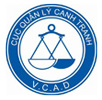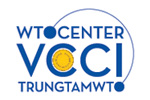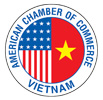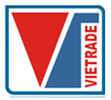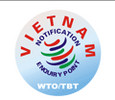Mr. Phan Duc Hieu, a National Assembly deputy from Thai Binh Province and a permanent member of the National Assembly's Economic Committee, believes the current challenges differ significantly from the past. It is crucial to unlock the existing resources and reform institutions while addressing numerous issues in economic management.

What are your thoughts on the recent bright spots in our country's economy?
Amidst global economic hardships, our economy has shown many positive signs in recent months, offering growth opportunities. I believe the first positive aspect is the success in economic diplomacy. This includes impressive foreign direct investment (FDI) figures, marked by growth in investment quantity and quality and project disbursements since 2019. These achievements highlight Vietnam's global and regional prominence in attracting foreign capital.
Another commendable aspect is the resilience and advancement of the business community in these challenging times, alongside the concerted efforts of various ministries, sectors, and localities contributing to economic growth activities. Notably, the Government has implemented vigorous solutions to enhance the business environment and alleviate corporate challenges.
For instance, the Prime Minister issued Directive No. 27/CT-TTg last October, focusing on advancing reform measures and enhancing the efficiency of administrative procedures and public services for citizens and businesses. Additionally, the Government established several task forces to oversee the implementation of directives, resolving multiple challenges and limitations. The Government and ministries have been decisive in enacting policies supporting growth, such as transitioning monetary policy from restrictive to flexible and introducing fiscal policies to reduce business operating costs.
What current difficulties require attention, in your opinion?
The economy is still fraught with uncertainties, particularly due to political conflicts worldwide. Therefore, regulatory bodies must identify and address issues impacting growth quality, including understanding business challenges. Businesses previously grappled with institutional barriers and complex administrative procedures, but current difficulties also stem from market challenges and intense competition, both domestically and internationally.
Government leaders and various ministries are focusing on expanding and diversifying markets to counteract the lack of orders. This approach is recognized not only by Vietnam but also by other nations and global businesses, leading to intense competition and distinctly different business challenges compared to the past.
What solutions do you propose for these challenges?
A topic of frequent discussion is the need to unlock currently stagnant resources, which are still seeking a way out. Hence, the Government or National Assembly must enact specific resolutions for timely and comprehensive problem-solving. For example, Government Resolution No. 33/2023/NQ-CP on resolving difficulties in the real estate market is timely. However, I believe this resolution is still insufficient and lacks the scope needed for all current business projects. For issues within the National Assembly's jurisdiction, resolutions should resolve them comprehensively, beyond general mechanism resolutions or pilot resolutions.
Another immediate resource is the state-owned enterprise sector. When private enterprises face difficulties, why not leverage the role of state-owned enterprises more effectively? This requires two crucial actions: accelerating equitization, divestment, and improving operational efficiency. Many state-owned enterprises have yet to realize their full potential due to institutional and policy constraints. Moreover, regulatory bodies should focus on resolving incomplete state-owned enterprise projects and encourage these enterprises to launch new business ventures. The Government should give priority to this sector by revising and amending the institutional framework applicable to state-owned enterprises.
Additionally, alongside administrative reform and business condition reduction, regulatory bodies should conduct suitable business inspections, supervision, and monitoring. In the current climate, these activities are essential but should aim to detect and correct errors early, supporting people, businesses, and state officials in proper implementation, rather than focusing on penalties. For example, for stalled projects, inspections should determine the causes of delay and develop solutions to revive and optimize project effectiveness.
Attention should also be given to policies that support businesses in reducing operating costs and securing the supply of essential goods for production and business activities, such as electricity, fuel, and food. The electricity supply, in particular, is crucial, and a failure to ensure it could have significant costs.
Thank you, sir!
Source: VCN
Keywords:global economic hardships, economy, electricity supply



